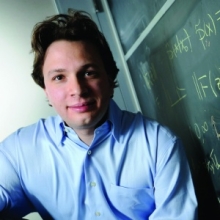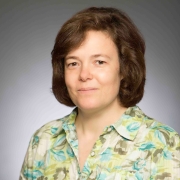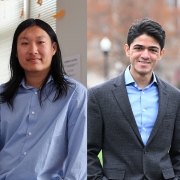Penn Biologists Reveal That Generosity Is Linked to Evolutionary Success

Associate professor Joshua Plotkin and postdoctoral researcher Alexander Stewart, both of the Department of Biology, examined the outcome of the classic game theory match-up known as the “Prisoner’s Dilemma,” as played repeatedly by a large, evolving population of players. While other researchers have previously suggested that cooperative strategies can be successful in such a scenario, Stewart and Plotkin offer mathematical proof that the only strategies that succeed in the long term are generous ones. They reported their findings in the Proceedings of the National Academy of Sciences.
“Ever since Darwin,” Plotkin says, “biologists have been puzzled about why there is so much apparent cooperation, and even flat-out generosity and altruism, in nature. Our paper provides an explanation for why we see so much generosity in front of us.”
The Prisoner’s Dilemma is a way of studying how individuals choose whether or not to cooperate. In the game, if both players cooperate, they both receive a payoff. If one cooperates and the other does not, the cooperating player receives the smallest possible payoff, and the defecting player the largest. If both players do not cooperate, they receive a payoff, but it is less than what they would gain if both had cooperated. In other words, it pays to cooperate, but it can pay even more to be selfish.
Their work builds upon the seminal findings of economist John Nash, who advanced the field of game theory in the 1950s, as well as those of computational biologist William Press and physicist-mathematician Freeman Dyson, who last year identified a new class of strategies for succeeding in the Prisoner’s Dilemma: an extortion strategy.
Stewart and Plotkin became intrigued by Press and Dyson’s work, and began to explore a different approach to the Prisoner’s Dilemma. Instead of a head-to-head competition, they envisioned a population of players matching up against one another, as might occur in a human or animal society in nature. The most successful players would get to “reproduce” more, passing on their strategies to the next generation of players.
Stewart noticed the first of these generous approaches among the strategies that Press and Dyson had defined. After simulating how some generous strategies would fare in an evolving population, he and Plotkin crafted a mathematical proof showing that not only can generous strategies succeed in the evolutionary version of the Prisoner’s Dilemma, but in fact these are the only approaches that resist defectors—those who do not cooperate—over the long term, because an extortion strategy doesn’t succeed if played against itself.
The discovery, while abstract, helps explain the presence of generosity in nature, an inclination that can sometimes seem counter to the Darwinian notion of survival of the fittest.
Read the full story here.





